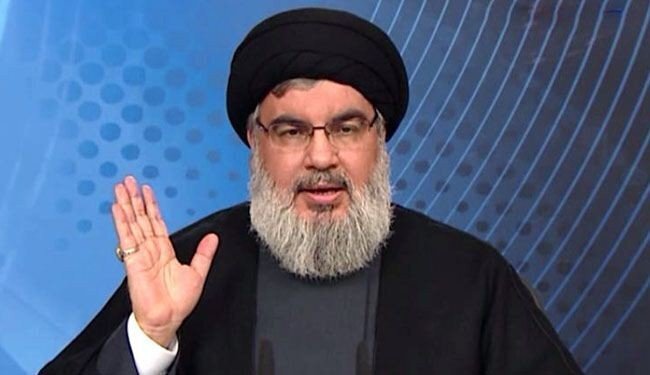Lebanon has an opportunity to buy fuel, petroleum byproducts from Iran: Nasrallah

TEHRAN — Hezbollah Secretary-General Hassan Nasrallah has said Lebanon has an opportunity to buy fuel and petroleum byproducts from “a friend called Iran” in exchange for Lebanese liras.
“I intend to discuss three things; economic situation in Lebanon, Lebanese politics, and regional developments,” Nasrallah said in a speech late on Tuesday.
“Some have said we are trying to turn Lebanon into the Iranian model. We never said this. All we said was that we have an opportunity to buy fuel and petroleum byproducts from a friend called Iran in exchange for Lebanese liras,” he stated.
He added that Iran needs hard currency, such as dollars and euros, “so they’re making a big sacrifice to sell us petroleum for liras.”
“Some have said the U.S. is Lebanon’s oxygen. Fine, inhale this oxygen – we’re not trying to cut it off. We’re saying what will Lebanon do if the U.S. cuts it off?” the Hezbollah chief said.
“Others said the goal of turning Eastward was to change Lebanon’s civilizational face; as if Lebanon isn’t in the Middle East [West Asia] but in South America. Lebanon is in the East,” Nasrallah added.
“We’re not stopping our political opponents from going to their friends to get Lebanon’s needs – we won’t accuse them of imposing their friend’s model on us if they even have a model,” he highlighted.
“Also, Lebanon doesn’t currently have the components to be transformed into the Iranian model – not that the Iranian model is a bad thing: they have economic, agricultural, fuel, electricity, and medical self-sufficiency and exports, military and space technology,” he highlighted, adding, “So, the Iranian model is a successful one. What are you afraid of? Nonetheless, Lebanon doesn’t have the components for the Iranian model.”
Of course, he continued, Iran has hardships but it has been steadfast for forty years under the U.S. pressure.
He explained that Iran has a hard currency problem because of the primacy of the dollar, but it’s doing well otherwise.
“Lebanon, under a little economic pressure, is ready to cave. So, we're not trying to impose the Iranian model or turn Lebanon communist,” he remarked.
“All we mean by turning Eastward is that since France won’t disburse CEDRE funds, U.S. imposes sanctions, and Arab countries won’t help for own reasons, we should accept help from whoever offers,” Nasrallah maintained.
----- ‘U.S. ambassador intervention’
Regarding domestic politics, Nasrallah said, “I want to confine myself to one issue – American intervention and behavior in Lebanon, particularly that of the ambassador to Lebanon. We’ve seen since Ambassador Shea came to Lebanon – and we welcome her like all other ambassadors – that rather than adhering to diplomatic customs, she is acting like a governor.”
“What right does an ambassador have to intervene in economic appointments, saying this person is OK and another isn’t? This has happened, and it’s happening openly,” he regretted.
“Go ask Lebanese officials, they'll tell you the U.S. ambassador told them to appoint specific people and not others as deputy Central Bank governor, otherwise the U.S. would withhold funds. Is this a friendly country, or a colonialist country?” Nasrallah continued.
“The U.S. ambassador is also saying that the Diab government is done and must go. What right does she have? This is a domestic Lebanese issue. More than this, she’s already deciding the makeup of the future Lebanese government,” Hezbollah leader added.
“What right does the U.S. ambassador have to get on national Lebanese TV and insult Hezbollah, a major political and social movement in Lebanon, and call it terrorist, criminal, etc. every day. And the government is silent, and she thinks this is for her to do.”
Nasrallah went on to say, “The U.S. ambassador is also inciting Lebanese parties and officials against Hezbollah and its allies, pushing Lebanon towards internal strife and civil war. The U.S. embassy’s role here has been to starve Lebanon, prevent investment in Lebanon, scare off foreign investment, etc. All of this, they’re doing on Lebanese territory.”
Meanwhile, he added, as the U.S. ambassador is crossing all these red lines, Lebanon is quiet. “A Lebanese judge bravely responded to her. Whether this was legal or not is beside the point. It shows there are independent and brave judges in this country.”
Leave a Comment